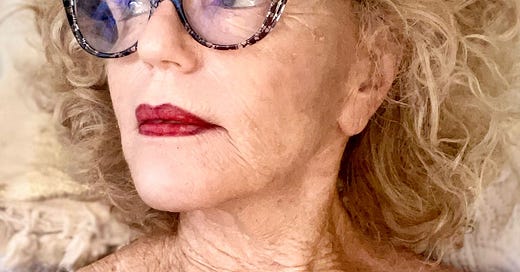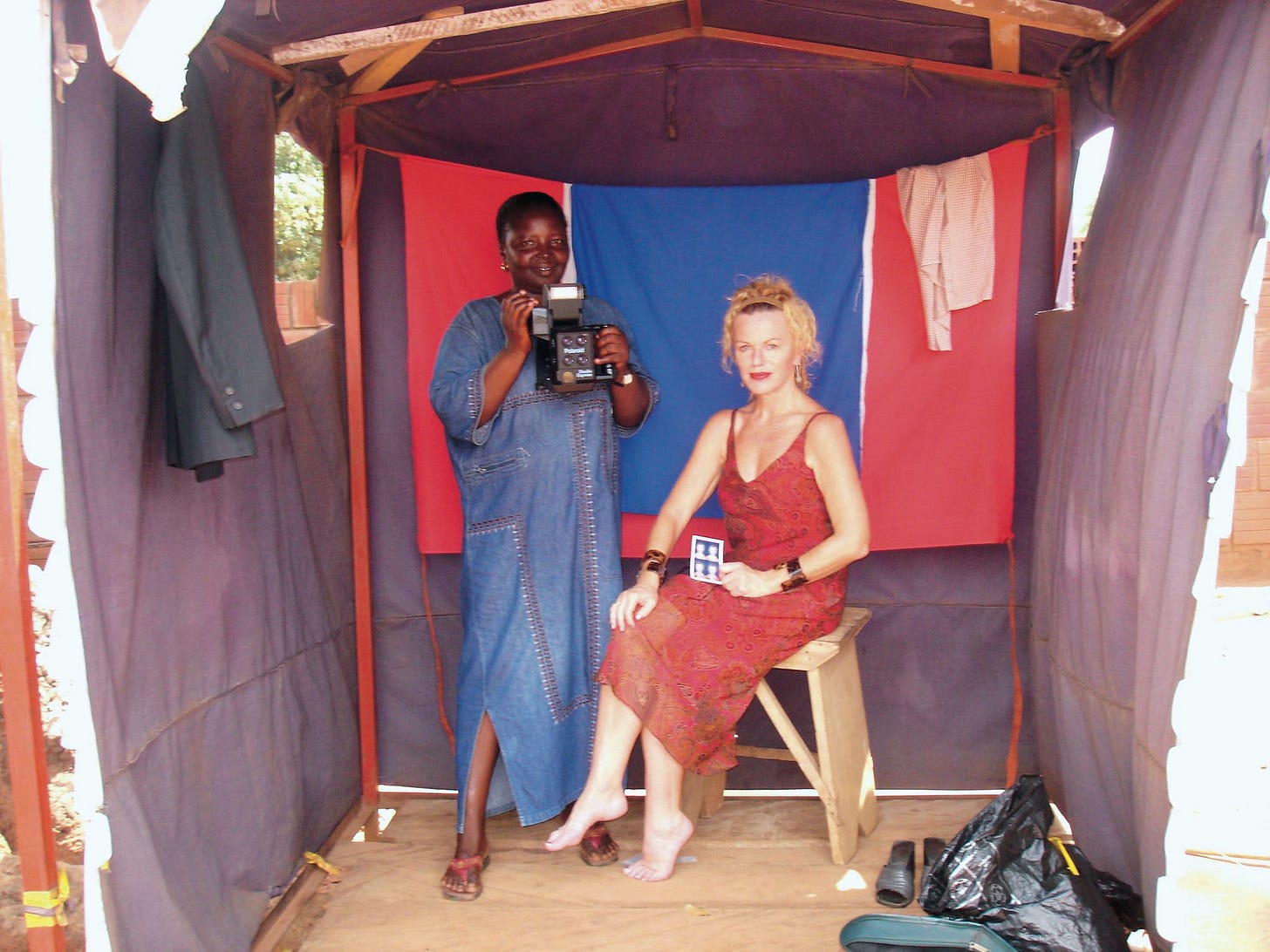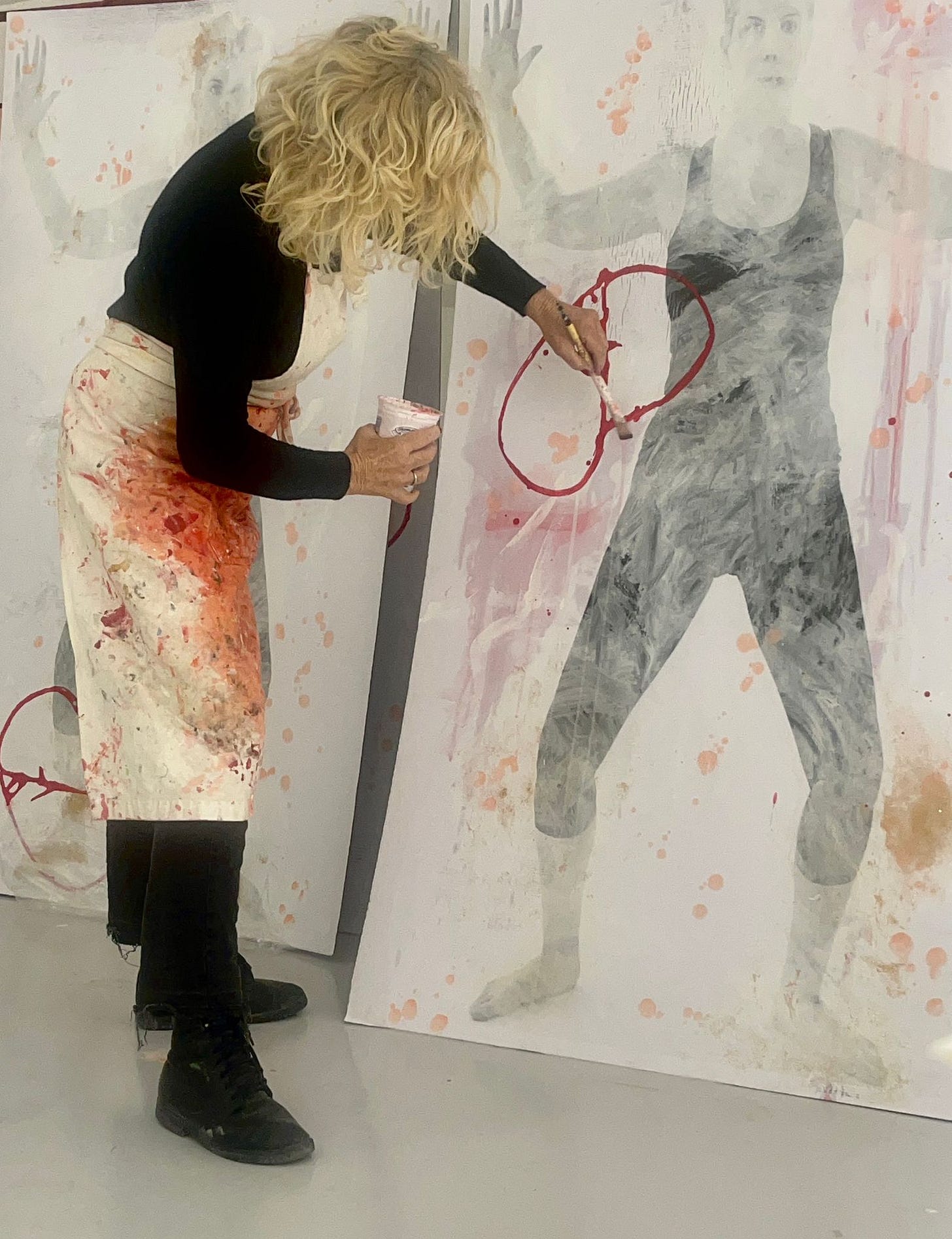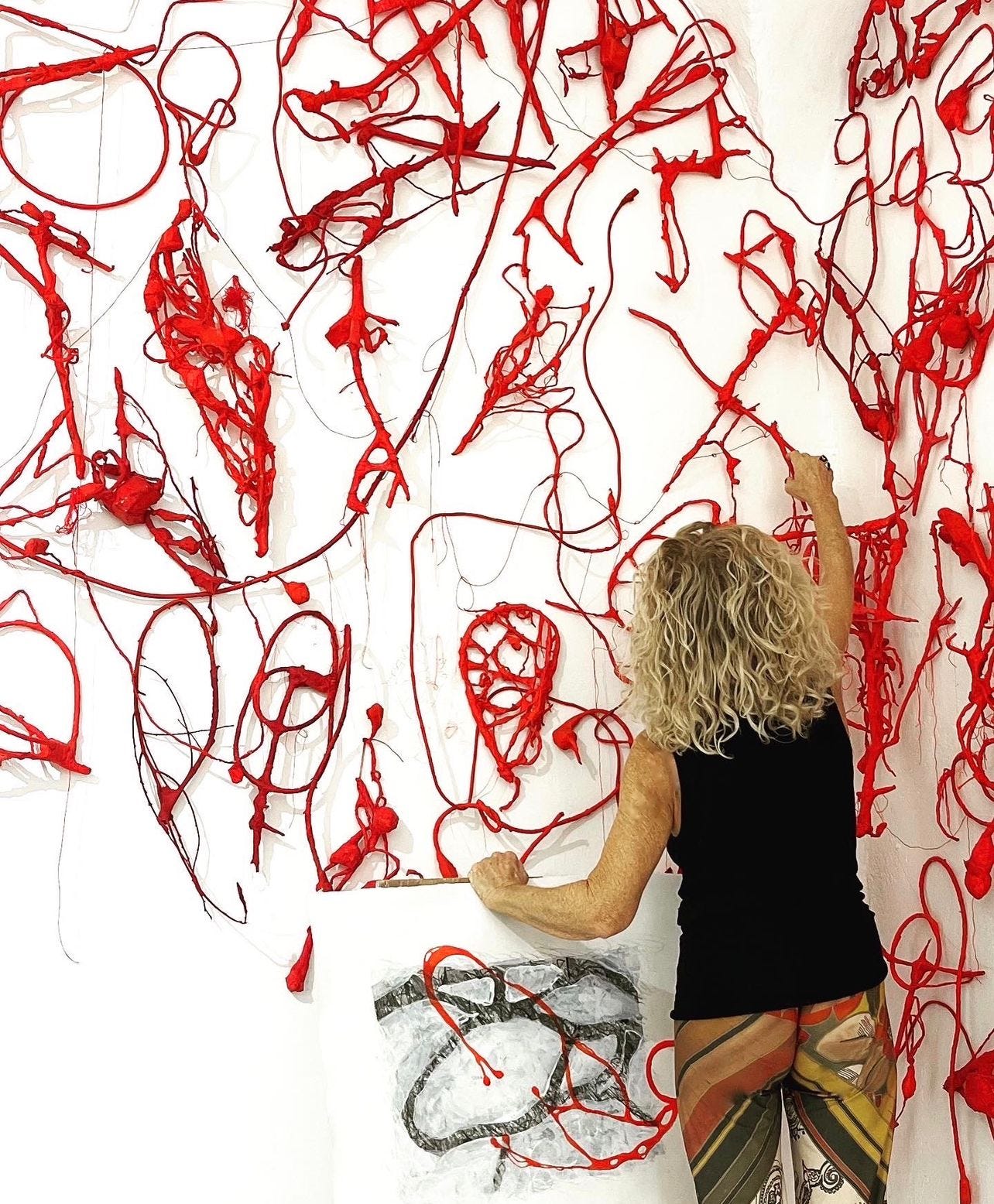#14: An Interview with Virginia Ryan
"Support functions also as a witness to the process. For me, to be seen is to exist as an Artist. No woman is an island!"
Welcome to Archipel, an ongoing dialogue between me (Cara Waterfall) and other poets and creatives of all kinds, celebrating the ways we connect through mentorship, community and transitions. If you are interested in participating, please send me an email by replying to this newsletter or click here.
Archipel was also inspired by my very first poetry mentor, my father. When you purchase a subscription to this newsletter, you are paying into a scholarship fund in his name, which will support emerging poets.
To learn more about The Donald E. Waterfall Scholarship Fund, click here.
Thank you for reading!
Today's interview is with Virginia Ryan, a distinguished Australian contemporary artist, whose career spans decades, continents and cultures. Her multidisciplinary approach encompasses painting, photography, sculpture and large-scale installations in which she explores identity, displacement and cultural dialogue — a perspective shaped by living and working in diverse places, including Egypt, Brazil, Serbia, Scotland, Ghana, and Côte d’Ivoire.
Virginia’s work challenges traditional boundaries and reflects her belief that art — like identity — is fluid and multi-faceted. In her photographic book, Exposures: A White Woman in West Africa with sound artist and anthropologist Steven Feld, she presents 60 photos that were taken by African and non-African acquaintances and passersby between 2001 and 2005, when Ryan lived and worked as an artist and member of a diplomatic mission in Ghana. Feld’s accompanying text highlights the complexity of these provocative images.
Virginia’s artistic inspiration is also rooted in migration, displacement and the transformative power of found objects or “objets-trouvés”. “The Castaways Project” is inspired by the West African coastline and how material culture carries historical and personal narratives.
In December 2013, Virginia left Abidjan for the historical port city of Grand Bassam, a UNESCO World Heritage Site in Côte d’Ivoire , where she sourced analogue photographs, pagne fabrics and abandoned film posters for further large-scale projects.
In collaboration with younger artists and studio assistants, she established the NGO, Make Art Not War, whose mission was to use art as a means of reconciliation in the immediate aftermath of civil conflict. In October 2016, Virginia continued her methodology of using art as therapy by establishing the open art workshop, “MakeArtNotWalls/italia” with West African asylum seekers in Trevi, Italy.
I was fortunate to benefit from Virginia’s skills as a cultural facilitator when I lived in Abidjan in 2012. She spearheaded the Abidjan Anglophone Art Safaris, an opportunity for expats to engage with West African art and meet Ivoirian artists. She had already begun to lay the groundwork for cross-cultural exchanges in West Africa when she co-founded The Foundation for Contemporary Art - Ghana in Accra with the late anthropologist and art historian Professor Joe Nkrumah. It celebrates its 20th anniversary this year.
Virginia is currently based in Umbria, Italy, where she is a member of the Windmill Art Power Plant, a non-profit dedicated to promoting equal opportunity for women artists. She is also a trained art therapist (B.A.A.T) and a gestalt counselor.
Follow Virginia on Instagram to learn more about her remarkable creative work and practice.
Who are you and how do you express your creativity? Or, who are you and how do you describe your art?
I am Virginia Ryan, an Australian-born, trained visual artist; I've been image-making for over forty-five years.
I am also a professional art therapist, having trained in Scotland and later completing a further Master’s in Gestalt here in Italy, where I now live.
I have a studio (in a medieval building in what was once the local bakery) in the town called Trevi in Umbria, which is my current workplace.
I've created a dense courtyard-garden transforming a place where for centuries women gathered to launder in the communal lavatoio : it nests between my back door and the entry to the studio which helps me transition from a living space into an intentional Art-Making environment. Having separation between my daily life and work is important to me, and deeply focusing.
I am a fairly constant worker: I try to be faithful to my identity and practice. At present, I'm continuing a body of work begun early this year in India at an art residency called Tasara in Kerala. It is now blossoming into a larger project thanks to the writing of a wonderful poet from America and a young Italian woman who is responding to these images verbally through text-based diary entries — this being integrated into the healing process after a a severe long-term illness.
What keeps you coming back to creative work? Why is it worth doing?
That is such a good question.
Is it habit that keeps me coming back to my work?
Is it the discipline that I've developed over years of having learned that spending some time every day — even if, often, not as much as I would dream of — in the studio at the end shows results? That very constant flow is what makes tentative steps grow into a body, and ultimately, a life's work.
Perhaps most importantly, is it simply wanting to see what comes out of nothing - a blank space/surface/room — and is transformed into that something , an art-work. A kind of world-making, on a small individual scale.
However sophisticated my work might become, it always has a visceral side and there is still part of that four-year-old I once was still playing in the sandpit.
What legacy do you hope to leave with your art?
I feel that living in the world of creative processes acts as a counterpoint to the growing violence we are witnessing in the world.
My art has always been about where I live — be it Egypt, ex Yugoslavia during the war, Ghana at the beginning of the new millennium, Ivory Coast also during a civil war, Italy now....My life has been one of travel and I've had to make connections and find my way in myriad moments, discarding and picking up, constantly making anew.
My work is often about giving new life to that which has been abandoned, whether that be found objects from a beach in Ghana or, at the other end of the spectrum, deep therapeutic work with West African migrants here in Italy: brave people, often abandoned to themselves, looking for ways to express their potential and tell their stories visually and verbally.
So if there is some sort of legacy, I hope the marks I leave become part of the vast network of universal creative endeavour for a better world.
After all, doesn't it all start with imagination?
What are your biggest challenges when it comes to maintaining a steady creative practice, and how have you overcome them?
The biggest challenge is myself. Is my work up to a self-imposed standard? Self-doubt, apparent meaninglessness, feeling the work is not as strong as I would want. We all have these feelings.
The important thing is not to ever give in because of a feeling of failure!
Of course there are time management issues — we all have those, too — but it is true that even a little a day adds up to a body of work in a year. Knowing that helped me in the moments when finding time really was a challenge.
At present, I am working alone so even if I have more time, which can also add on extra pressure. But I seem to manage pretty well, so I really do believe habits make us!
Like many creatives I am aware of the dangers of standardisation through social media and the dulling effects of the online world, if not used prudently.
What advice do you have for someone who wants to start or maintain their creative practice in a new way?
Just begin. Allow a process of unfolding. Be kind to yourself. We never know where the road will take us!
Why does mentorship/ community support matter?
Support functions also as a witness to the process. For me, to be seen is to exist as an Artist. No woman is an island! So in a way, writing this, i think of the times i have felt the strongest sense of community and how invaluable a force that is.
As a therapist, I've seen that group work can help an imagining of new ways of being. As an artist, being part of loose artistic communities (local or global) has created stability and allowed conversations I might never imagine alone.
And a deep awareness of the particular historic and current realities of being a woman artist has come into focus around different communities creating female power all over the world.
Do you have a mentor/support structure/community?
I live in a decentralized community where much social interaction is still off-line. We often simply meet in the piazza bar and talk. That is becoming more and more valuable.
I have artist friends in many countries of the world. At times we are not in direct contact, but I feel strong knowing they are there, especially when I am deep in work. And I have an Italian artistic community of great support and value to me. Much of my time, I am also speaking and thinking in Italian, so that linguistic and cultural community is a major part of my world view and life experience.
Who is your dream mentor, living or dead, and why?
Hmmmm, I love this question. THIS dream mentor is a kind of Life Force, a vital propulsion towards the creative life, towards an examined life lived well. The dream mentor picks me up when I fall, tells me failures make us strong, that it truly IS the voyage that is the point!
This dream mentor appears in/through different people, in different moments of my life, with no fixed name. For example, in the last few months I have been revisiting the works and world of Judy Chicago, who touches me more deeply this time around for her courage and commitment.
The dream mentor is always there, alive, ready to remind me that to be an artist is real and precious.
The spirit of the dream mentor reaches me also through the written word, the museum visit, a walk in the hills along the Franciscan trail here where I live. I can feel it now, as I write. From the time of the first cave paintings, the muses and mentors are constantly whispering in my ears and reminding me to keep my eyes wide open!
(Answers received November 20, 2024 via email.)







"I feel that living in the world of creative processes acts as a counterpoint to the growing violence we are witnessing in the world." Thank you, Virginia Ryan, this resonates deeply. And thank you for this interview, Cara.